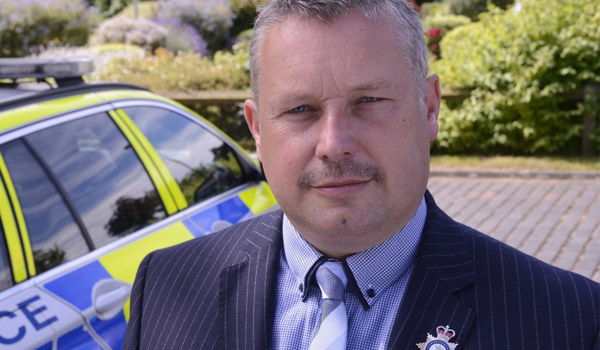Uniform approach
As forces face increased pressure to make efficiencies through collaboration, police and crime commissioner Jason Ablewhite explains how seven are looking to make as much as 20 per cent savings through the largest regional procurement arrangement in the country.
It is widely acknowledged that procurement is one area of the police service that would benefit most from a degree of standardisation. The current model means that suppliers effectively have 43 independent customers that can choose how and what they buy often influenced by a desire to maintain their own distinct local identities. This system has led to thousands of pounds of potential savings being lost every year, to the extent that in 2016, the Home Affairs Select Committee (HASC) recommended the College of Policing takes a more involved role in the procurement process. Although chief executive Alex Marshall expressed reluctance to do so, the HASC pledged to formally make this recommendation to the Home Office if no improvements were seen by this year. Work is underway across the country to improve the procurement landscape. The National Uniform Managed Service (NUMS) is looking at how uniform can be standardised between forces, and the National Police Procurement Hub has been providing access to pre-approved goods and services for several years now. However, in the east of England, seven forces are about to embark on the biggest procurement deal of its kind that is predicted to save more than £36 million between them. Collaborative benefits The forces covering Bedfordshire, Cambridgeshire, Hertfordshire, Norfolk, Suffolk, Essex and Kent have a combined annual budget of £1.22 billion. Around £183 million of that is spent on goods and services and, naturally, the public expects this to be spent as efficiently as possible. Consequently, the seven forces are seeking to standardise equipment purchasing and service delivery across the seven regions, with each hopefully securing better deals in the process. Although more than £290 million has been saved nationally through collaborative procurement since 2010/11, there are still serious inconsistencies in the amounts forces pay for different goods and services. In 2013, the National Audit Office found many opportunities to improve the effectiveness of procurement remain unexploited and this message was repeated last year by Policing Minister Brandon Lewis. For example, data published by the Home Office last August showed that while Hampshire Constabulary paid £600 for four hours of translation services, Thames Valley Police spent just £80 per session. The three Yorkshire-based forces also spent just £50 each on forensic stain analysis less than half the amount paid by others. The seven forces involved in this deal are no strangers to collaboration. They already share a £32 million computer system in the form of the Athena record management system. Bedfordshire Police, Cambridgeshire Constabulary and Hertfordshire Constabulary have partnered on areas ranging from roads policing to dog kennelling, resulting in significant savings across the three forces. Norfolk Constabulary and Suffolk Constabulary are effectively in a strategic alliance, while Kent Police and Essex Police have a continued commitment to collaborate across typical boundaries. To improve standardisation, the seven forces have created a new governance structure that sees the seven police and crime commissioners (PCCs) and chief constables involved in the region meet once a month. So far, they have been examining the ways the seven forces can collaborate to save money and improve resilience. The forces have already recruited a new head of procurement to lead on the project. Simon Mulvey, currently the strategic head of procurement for the Bedfordshire, Cambridgeshire and Hertfordshire forces, estimates it should be possible to save 20 per cent of the £183 million procurement budget. However, he believes that by maximising opportunities in certain areas this can be pushed even further. For Cambridgeshire Constabulary, this should result in savings of £2 million a year, which, against a planned saving requirement of £8 million, starts to look considerable. From our seven-force point of view, it is an absolute no-brainer, Cambridgeshire PCC Ja


